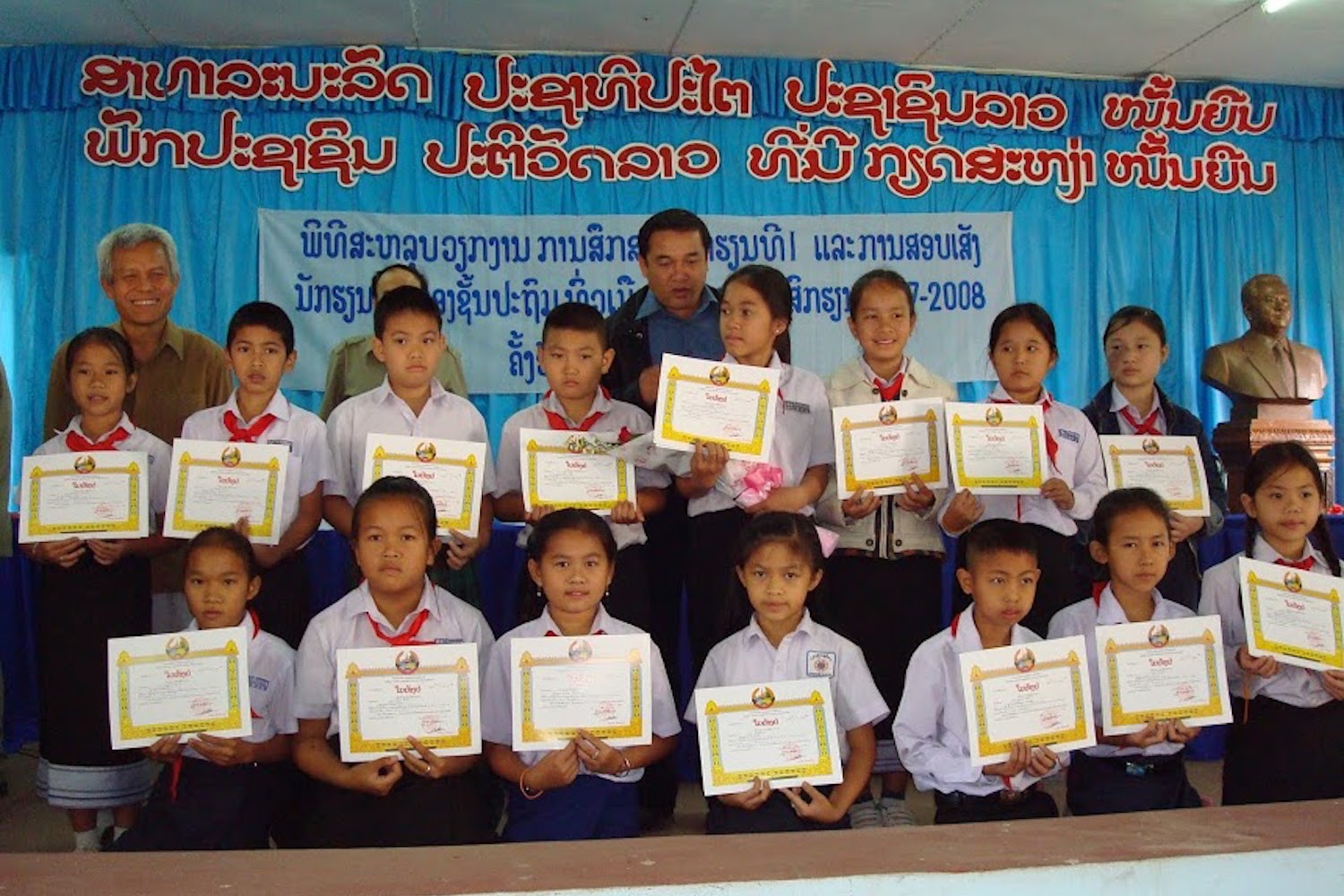Radio Free Asia: 26 March 2012
By Parameswaran Ponnudurai
 A 2005 photo of Sombath Somphone in the Philippines. AFP/Somphone family
A 2005 photo of Sombath Somphone in the Philippines. AFP/Somphone family
Are the authorities in Laos trying to cover up a carefully planned abduction of Sombath Somphone, the country’s most respected civil society leader?
It may seem so — going by the conduct of the one-party Communist government since he went missing on Dec. 15 last year.
As his disappearance reached its 100th day on Monday, the Lao government has yet to come up with a satisfactory report on the circumstances under which the 60-year-old highly respected community worker vanished after being stopped at a police checkpoint in the capital, Vientiane.
“Observers can’t help but think its continuing refusal to release its findings is a cover-up for something,” said Murray Hiebert, deputy director of the Southeast Asia Program at the Center for Strategic and International Studies (CSIS) in Washington.
“The Lao government needs to quickly make public the findings of its investigation into what happened to Sombath,” he said.
The activist’s disappearance “sends a chill through civil society and nongovernmental organizations operating in Laos,” said Heibert, who had worked on development issues in Laos in the 1970s when he first met Sombath, a U.S.-educated agronomist.
Not only has the Lao government failed to acknowledge any responsibility for Sombath’s disappearance, it has also turned down international requests to provide any assistance in the investigations.
This has raised concerns that the case represents the beginning of a state crackdown on dissenting voices.
“One hundred days have passed since Sombath’s abduction and two things remain constant—there is no sign of Sombath, and the Lao government’s assertions and claims regarding his disappearance still totally lack credibility,” said Phil Robertson, Deputy Director of New York-based Human Rights Watch’s Asia Division.
“The Lao government should recognize they cannot play for time because the international community’s interest in this issue is not going to diminish,” he said.
U.S. offer rejected
A U.S. offer to provide technical help to the government to enhance the quality of some blurry images of a vital closed circuit video footage on Sombath’s last known moments has been rejected.
The Lao Ministry of Public Security said it was its own “internal responsibility” and “it is unnecessary to seek assistance from outside” for any inspection of the police-recorded CCTV footage, which suggests that Sombath may have been abducted after he was stopped by police in the capital Vientiane.
The government claims it has notified Interpol that Sombath is missing, but a search on the International Criminal Police Organization’s website revealed that he is not included in its register of missing persons.
“We are concerned at the lack of significant information we have received from the Lao government about Mr. Sombath’s case, despite our offers to assist with the investigation and numerous expressions of concern about Mr. Sombath’s welfare,” U.S. Secretary of State John Kerry said in a weekend statement.
“Regrettably, the continuing, unexplained disappearance of Mr. Sombath … raises questions about the Lao government’s commitment to the rule of law and to engage responsibly with the world,” he said.
Laos’s refusal to forthrightly address the case of Sombath, an internationally recognized development leader, may also cost it international aid, which makes up about 70 percent of the country’s budget.
‘Grave concern’
The European Union indicated that Laos will face some form of action, expressing “grave concern” over the Sombath issue.
“[F]or many organizations, 100 days is a time for reflection and taking stock on progress,” the EU said after its delegation met with Lao government leaders and lawmakers on the issue earlier this month.
“If no positive result” is achieved by that time, Laos will come under “a new phase of international activity,” the EU warned in a statement after the talks.
“If Lao officials think the issue of Sombath’s disappearance will go away, they are wrong,” said Dutch Senator and EU delegation leader Tuur Elzinga.
“It will be the first item on any agenda in bilateral, multilateral and international discussions with and about Laos, until Sombath is safely returned to his family.”
Nongovernmental groups in countries neighboring Laos are also concerned over Sombath’s disappearance, highlighting the case as among growing human rights concerns in the region.
But governments of the Association of Southeast Asian Nations (ASEAN), which recently adopted its first declaration on giving greater protection of human rights for the region’s 600 million people, have remained silent.
Based on the terms of reference of the ASEAN Inter-governmental Commission on Human Rights (AICHR), which is the group’s central but nonbinding rights mechanism, the ASEAN Secretary-General can bring “relevant issues” to the attention of the panel and “concurrently inform the ASEAN Foreign Ministers of these issues.”
‘Critical test’
But most of the 10 ASEAN member states—Brunei, Burma, Cambodia, Indonesia, Laos, Malaysia, the Philippines, Singapore, Thailand, and Vietnam—are wary of any scrutiny of their own human rights records.
Sombath’s case is a “critical test” as to whether AICHR can play a meaningful role obtaining information independently and impartially in serious human rights cases in the ASEAN region, Human Rights Watch said.
Still, the rights group says, authorities in Laos have not answered a simple but key question about this case: Why, if Sombath was kidnapped, did the police at the scene do nothing to protect him?
And the absence of any real investigation points to the Lao government’s responsibility, it said.
“It’s time for the powers that be in Vientiane to release Sombath back to his family, and come clean on what happened by transparently investigating and holding accountable those responsible,” said Human Rights Watch’s Robertson.
Failing to act now means that Laos’s already poor human rights record will continue to transform the international image of the impoverished country, he said.
“One can see the tourism campaign motto already—travel to Laos where abductions happen and impunity reigns supreme.”
